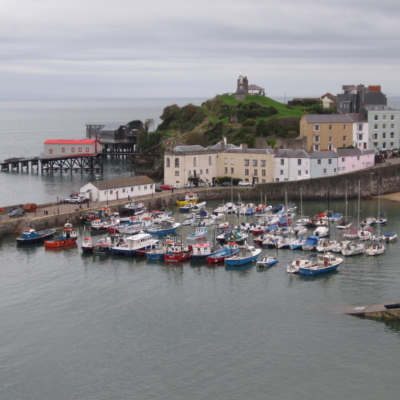
Tomorrow’s Tourism; More Domestic Less International – Nigel Adams, MTS, looks to the future of tourism in the latest Journal
The last fifty years has seen the consistent growth of international tourism aided by cheaper air travel, package tours and recently the ability for the consumer to put their own online holiday packages together. The next thirty years may see the decline in international tourism and the rise of domestic tourism.
This will be due initially to Covid-19 and its after effects, and more fundamentally the challenge of climate change.
Covid-19 has demonstrated the vulnerability of humans to viruses, particularly in enclosed spaces such as aircraft and cruise ships. The norovirus had been an increasing problem for the cruise industry and demonstrated the difficulties of achieving virus control on cruise ships. Large parts of the world will not get their populations vaccinated until 2022, giving scope for vaccine resistant mutations to emerge. This uncertainty will make people nervous of taking holidays abroad, particularly the experience over the last twelve months of changes to quarantine rules at very short notice.
A further factor may be that the cost of overseas holidays will rise, with the reduction in airlines and holiday facilities due to bankruptcies arising from the loss of trade.
Longer term, the major challenge facing the world is climate change and this will result in the growth in appeal of domestic holidays and a decline in overseas holidays.
The appeal of overseas holidays will be reduced as a result of the following factors:
- Climate change impacts in some of our more popular holiday destinations. In 2019, 45.45% of UK visitor destinations were to Mediterranean countries (source: Travel Trends,ONS). These are likely to be adversely affected by heat waves, health issues, wild fires, water shortages – particularly on the islands, landscape impacts during the summer months.
- Increasing instability in many of the countries in Africa, South America and parts of Asia due to increasing competition for dwindling resources and health issues.
- Mitigation policies by governments seeking to reduce the impacts of climate change with higher fuel prices and air fuel duty making the cost of air travel far more expensive. Whilst Airbus is aiming to introduce zero emission aircraft using hydrogen fuelled concepts, they will not enter commercial service until 2035.
The appeal of the UK as a holiday destination will increase as a result of predicted warmer and drier summers, though there will be wetter autumns and winters (source UKCP 2019). Providing our cultural and tourism infrastructure recovers from the impact of Covid, the UK is well placed to grow the domestic market.
There is likely however to be a decrease in overseas visitors due to the impact of mitigation policies. Overseas visitors to the UK spent £28.4 billion in 2019, but UK residents spent £43.4bn on overseas holidays in 2019 (source Travel Trends ONSs 2019). Whilst the outlook for overseas visitors to the UK is not so bright, this could be more than compensated for if our domestic industry could capture some of the £43.4bn spent by UK residents on overseas holidays.
For the full journal – https://thetourismsociety.com/wp-content/uploads/2021/07/JUNE-E-Journal.pdf




